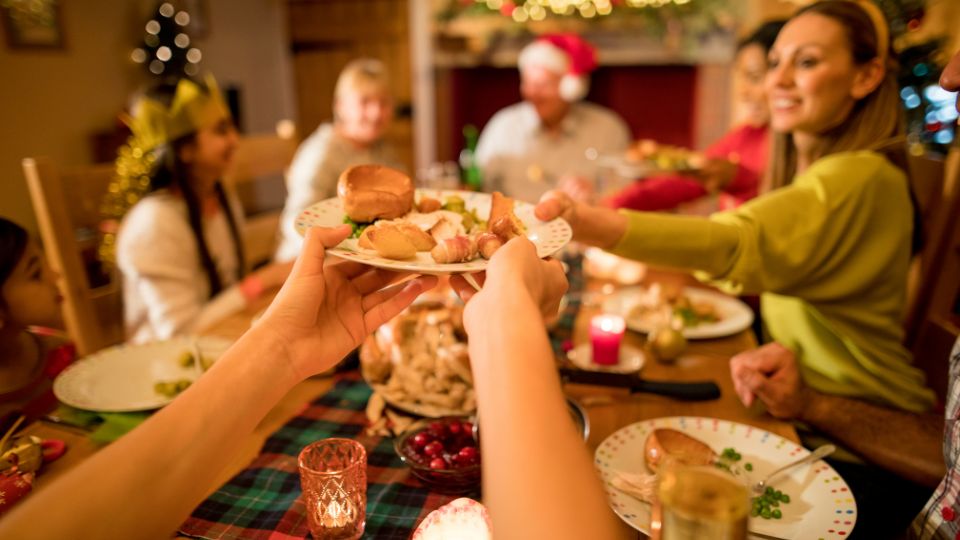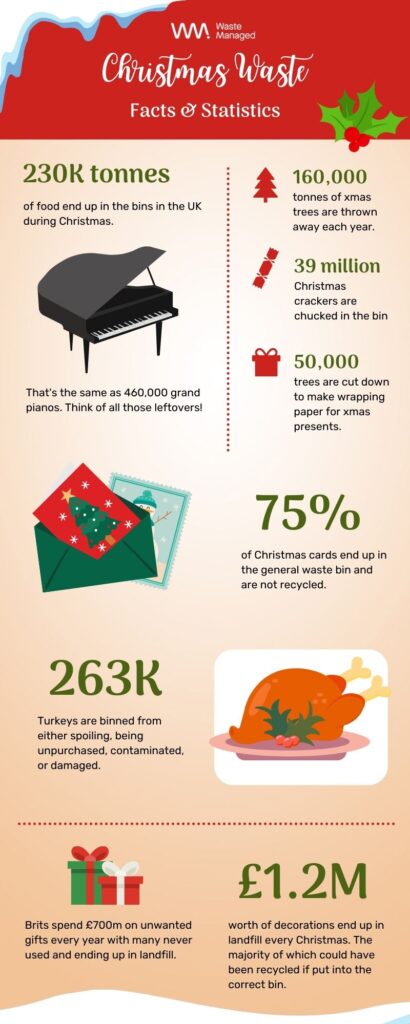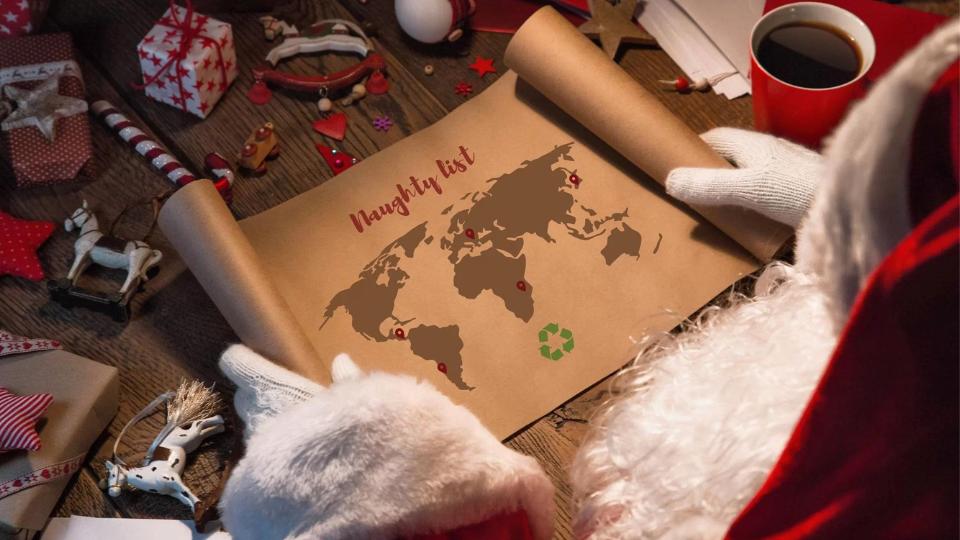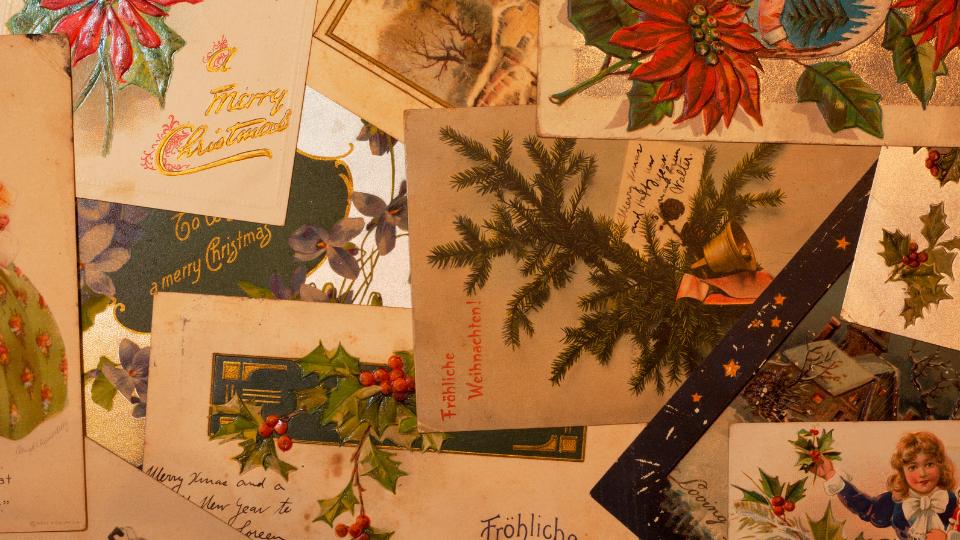
Christmas is a time of joy and celebration, but it can also be a time of waste. From wrapping paper and gift bags to discarded food and broken decorations, the holiday season can generate a significant amount of waste.
But it doesn’t have to be this way. By making a few simple changes, we can reduce the amount of Christmas waste produced during the holiday season and help protect the planet.
To highlight some of the key environmental issues, we’ve compiled the biggest, best and most up-to-date list of Christmas waste facts for you!
Table of contents
- General Christmas waste facts
- Christmas wrapping paper waste facts
- Xmas packaging waste facts
- Christmas food waste facts
- Christmas recycling facts
- Reducing your Christmas waste
- How much does all this festive waste cost?
- Conclusion
General Christmas waste facts
- Compared to the rest of the year, the amount of waste produced at Christmas is 30% higher
- After the festivities, over 160,000 tonnes of Christmas trees are thrown away
- Spoiling Xmas trees emit over 100,000 tonnes of methane gas when they decompose
- The amount of energy needed to cook the nation’s brussels sprouts would be enough to power a home for 2.5 years
- During the Xmas break, we drive a collective total of a billion miles to visit family relatives and friends
- Christmas eve, Christmas day, and Boxing day combined makeup just under 6% of the UK’s total annual carbon emissions
- Around 39 million Christmas crackers are expected to be chucked into the bin this year
- If you laid out all the Xmas fairy lights thrown away each year it would stretch to 70,000 miles
- 75% of Xmas cards end up in the general waste bin and are not recycled
- By the time we reach spring, nearly half (41%) of gifted toys will be broken and end up in landfill
- Drinks accompany the festive season, with 9,500 tonnes of glass beer and wine bottles being discarded by us Brits
- 34 million champagne/prosecco bottles are thrown away each Christmas
Christmas wrapping paper waste facts

One of the biggest sources of waste during Christmas is wrapping paper and gift bags. While these may make presents look nice under the tree, they often end up in the bin after they’re opened.
To reduce this waste, consider using reusable gift bags or boxes instead of disposable ones. You can also wrap gifts in newspapers, fabric, or even old maps or comics. These options not only reduce waste, but they can also add a unique and personal touch to your gifts.
- If you take all the Xmas wrapping paper that ends up in the bin and lay it out flat end to end it would stretch to 238,855 miles – that’s the average distance of the Earth to the Moon!
- 40 million rolls of sellotape are used to wrap up presents each year in the UK
- In Britain, we send over 5 million tonnes of wrapping paper to landfill every year – 75% of this is during Christmas
- Around 50,000 trees are cut down to make the wrapping paper used to wrap Christmas presents
Xmas packaging waste facts

- Most Christmas packaging waste ends up in landfill. In fact, 114,000 tonnes of recyclable packaging waste is wrongly put into the general waste bin during the festive period
- 4,500 tonnes of tin foil is used to cover leftover Turkey and to preserve other Christmas dinner items in the UK. This is often a single-use material and so ends up in the bin pretty quickly
- 300 million straws and cups for guests will be used
- 125,000 tonnes of food packaging are thrown away
- The around of plastic waste discarded by Brits at Christmas equals the weight of 76,000 Giraffes!
- UK citizens eat about 1 million mince pies which cause an entire tonne of aluminium waste
- Nearly half (48%) of Britons say that they plan on reusing the gift bags they receive this year
- 100 million black bin bags filled with packaging waste from Christmas presents are chucked away each year
Christmas food waste facts

Another common source of waste during the holiday season is food. Whether it’s leftovers from a holiday feast or uneaten snacks and treats, food waste can be a major problem.
To reduce food waste, plan ahead and make a list of the foods you will need for your holiday meals. This will help you avoid buying too much food, which can save you money and reduce waste. You can also use leftovers to make new dishes, such as soups or sandwiches, or freeze them for future meals.
- 66% of Britons ‘overbuy’ on food at Christmas
- 42 million plates worth of food ends up in the bin in the UK during Christmas
- Around 10 million Turkeys are bought for consumption in Britain – the majority are never fully eaten
- 263,000 Turkeys are chucked away from either becoming spoiled, unpurchased, contaminated, or damaged
- How many times have you opened a tray of mince pies and they’ve all been eaten? Hardly ever right? We throw away 7.5 million mince pies every year
- Similarly, 740,000 portions of Xmas pudding are destined for the bin
- Everyone’s least favourite trimmings, sprouts are also binned on mass with 17.2 million uneaten Brussels headed to landfill
- 2 million kilograms of cheese are binned – that’s the equivalent of 2000 Great White Sharks
- 230,000 tonnes, or 460,000 Grand Pianos, of food ends up in the bin during the Christmas holidays
- 7.1 million Pigs in blankets are chucked – an absolutely ho ho horrendous fact
- Enough gravy to fill an entire Olympic-sized swimming pool is discarded (2.5 million litres)
- 10.9 million parsnips, 11.5 million potatoes, and 9 million carrots end up wasted
- Overspending on food at Christmas is an endemic made worse by the fact that 40% of Xmas food is on sale during the festive period – this encourages people to buy more than they need
- 425 million pints of beer are consumed during the holiday. That’s the equivalent of 57 full-sized Olympic stadiums filed up
- 500 million cans of soft drinks are purchased during the Christmas period. Half are never recycled.
Christmas recycling facts

In addition to reducing waste, there are also many ways to reuse and recycle materials during the holiday season. For example, you can use old greeting cards to make gift tags or decorations. Read our guide for more Christmas card recycling ideas.
You can also recycle your Christmas tree by using it as mulch in your garden or by taking it to a recycling centre. And if you have broken or damaged decorations, consider repurposing them or donating them to a local thrift store.
- Everyone loves a cuppa at Christmas but did you know that recycling just two tea bags can create enough electricity to fully charge a smartphone?
- Got another unwanted Lynx Africa deodorant for Christmas? Make sure you recycle the can.
- Recycling just one aerosol can save enough energy to power a home stereo speaker for 32 hours.
- Real Christmas trees are 100% recyclable and can be used for compost.
- This Christmas, Germany lead the way with a recycling rate of 67.1%, the UK lags behind at 42.9%
Reducing your Christmas waste
One of the best ways to reduce waste during the holiday season is to simply be mindful of your consumption.
This means thinking about the items you buy and whether you really need them, as well as considering the environmental impact of your choices.
By making conscious and sustainable choices, we can all help reduce waste and protect the environment during the holiday season and beyond.
How much does all this festive waste cost?
- Brits spend £700 million on gifts that go unwanted each year
- Only 1 in a hundred gifts will continue to be used 6 months after Christmas day
- The average household spends a whopping £185 on decorations
- 150 million cards are sent at Christmas. Hardly any are recycled
- It costs £26 million to dispose of all of the UK’s Christmas waste
- £1.2 million worth of decorations end up in landfill
- £444 million of food is wasted each year
- The average household spends £400 on food, drink, and decorations
Conclusion
In conclusion, the holiday season is a time for giving and celebration, but it doesn’t have to come at the expense of the environment.
By making a few simple changes, we can reduce the amount of waste that is generated during Christmas and help protect the planet.
From using reusable gift bags and boxes to recycling and repurposing materials, there are many ways that we can celebrate the season in a sustainable and environmentally friendly way.
We’ve even given you over 20 ideas for sustainable Christmas gifts this year!
Merry Christmas ya filthy animals!






